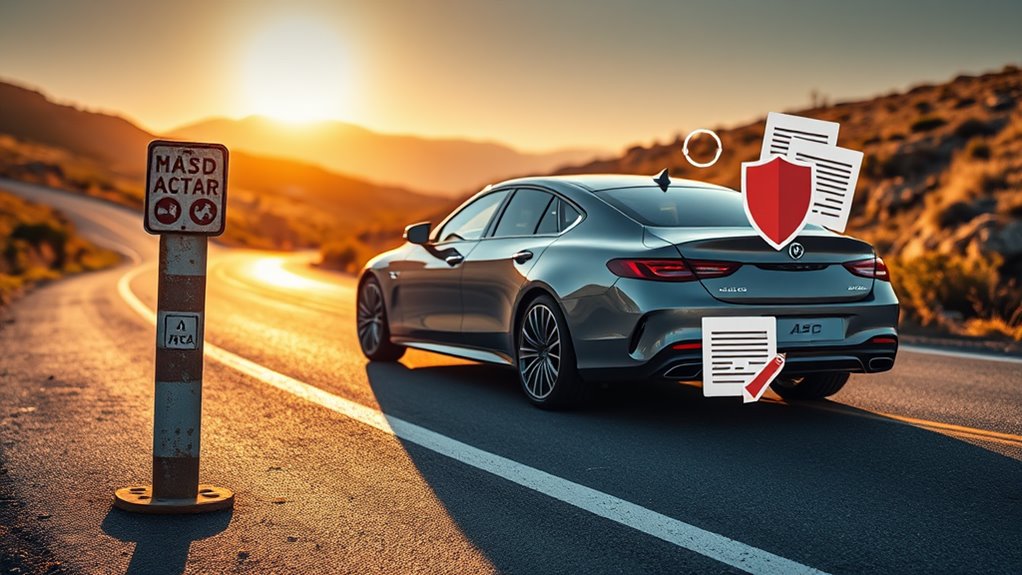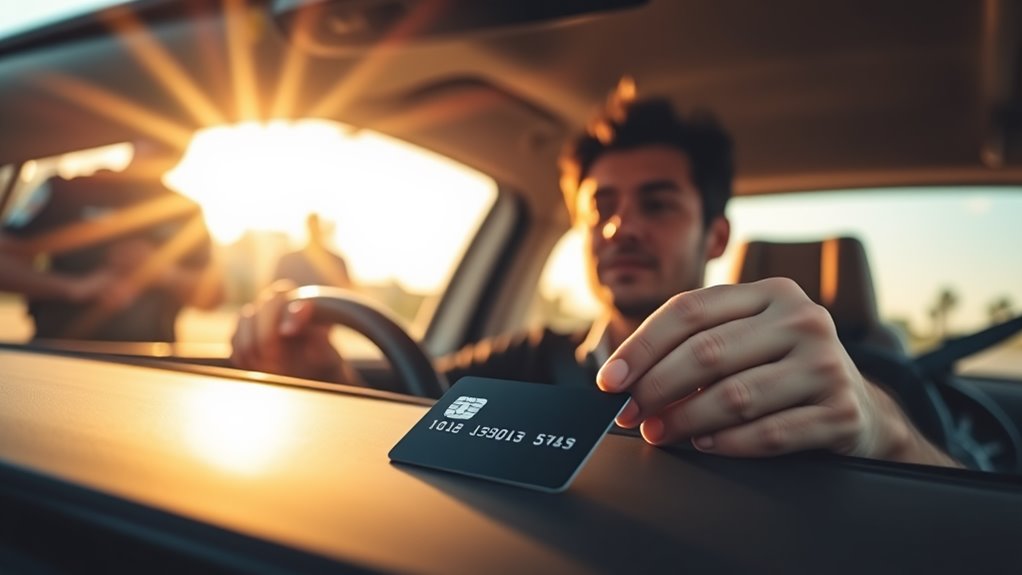Much like a safety net beneath a tightrope walker, insurance plays an essential role in protecting drivers on the road. It offers various layers of security, from managing financial liabilities to covering medical expenses. Understanding these aspects can greatly impact your driving experience. But what specific benefits does insurance provide that can make a difference in your day-to-day travels? Let's explore the critical ways insurance safeguards you as a driver.
Key Takeaways
- Insurance provides financial protection by covering damages from accidents, ensuring drivers aren't personally liable for high costs.
- Liability insurance fulfills legal requirements, preventing fines and maintaining driving privileges while safeguarding personal assets.
- Medical coverage helps manage escalating medical expenses from accidents, offering support for treatments regardless of fault.
- Legal representation through insurance aids in negotiating settlements and navigating disputes, enhancing the chances of fair outcomes.
- Comprehensive coverage options, like roadside assistance and repair protections, offer peace of mind while driving and protect against unexpected incidents.
Legal Protection Against Financial Liability

While maneuvering through the complexities of driving laws, understanding legal protection against financial liability is essential for every driver.
Financial responsibility laws require you to demonstrate the ability to cover damages in an accident, primarily through automobile liability insurance. Most states mandate this insurance to guarantee drivers can compensate others for injuries or damages. Compliance with these laws is vital to avoid legal repercussions and protect your financial future. Having affordable auto insurance can ease the burden of unexpected costs related to accidents.
Non-compliance can lead to severe penalties, including fines and suspension of your driver's license or vehicle registration. Additionally, if you're held liable in an accident, your personal assets could be at risk.
Coverage for Property Damage
Understanding coverage for property damage liability insurance is essential for responsible driving. This mandatory coverage, required in most states, protects you financially if you're at fault in an accident.
It pays for repairs or replacements of damaged properties, like vehicles, buildings, and public assets, up to your policy limits. There are no deductibles; however, any costs exceeding those limits are your responsibility.
Each state has different minimum coverage requirements, so it's important to know your local laws. Additionally, consider opting for higher limits if you live in areas with expensive properties.
This coverage safeguards you against potential financial loss, ensuring you meet legal obligations while driving responsibly.
Medical Expenses for Injuries
Medical expenses for injuries sustained in car accidents can quickly become overwhelming, especially when you're already dealing with the aftermath of a crash.
Medical expenses from car accidents can escalate rapidly, adding stress to an already challenging situation.
Insurance options like Medical Payments Coverage and Personal Injury Protection (PIP) can alleviate this financial burden. Medical Payments Coverage helps pay for medical expenses, regardless of fault, covering deductibles, co-pays, and even ambulance fees.
PIP offers broader support, covering immediate medical treatments, lost wages, and essential services in no-fault states. Both options include various medical services such as hospital visits, surgical procedures, and rehabilitation.
However, coverage limits typically range from $1,000 to $10,000, and any expenses beyond that remain your responsibility. Choosing the right coverage is essential for financial stability post-accident.
Support During Legal Disputes

After addressing medical expenses related to injuries, the focus often shifts to maneuvering the complexities of legal disputes that can arise following a car accident.
Insurance can provide essential support during these challenging times, helping you navigate various aspects, including:
- Legal Representation: Attorneys negotiate with insurers to secure fair settlements and represent you in court if needed.
- Fault Investigation: Insurance lawyers investigate accidents, gathering evidence to establish fault and support your claim.
- Claims Assistance: They assist with filing claims against uninsured or underinsured motorists, ensuring you receive the compensation you're entitled to.
Understanding these elements can empower you to handle disputes effectively, as proper legal support can greatly influence the outcome of your case.
Peace of Mind While Driving
Driving can evoke a sense of security when you're well-prepared with the right insurance coverage. Extensive packages often include tire and wheel protection, which shields you from unexpected road hazards, while windshield coverage guarantees repairs for chips and cracks without impacting your premiums.
Additionally, dent and ding protection provides hassle-free fixes for minor damages. In case of emergencies, roadside assistance offers towing, lockout support, and rental reimbursement, alleviating stress during breakdowns.
Accident and breakdown coverage guarantees repairs regardless of fault, enhancing your financial security. With features like deductible waivers and personalized insurance options, you can tailor your coverage to fit your needs.
Ultimately, these elements contribute to a more relaxed driving experience, allowing you to focus on the road ahead.
Conclusion
In summary, having insurance is like having a safety net while you navigate the unpredictable roads of life. It not only shields you from financial liabilities and covers property damage but also guarantees you're not alone during legal disputes and medical emergencies. By investing in all-encompassing coverage, you're not just protecting yourself; you're enhancing your overall driving experience, allowing you to focus on what truly matters—getting to your destination safely and with peace of mind.

